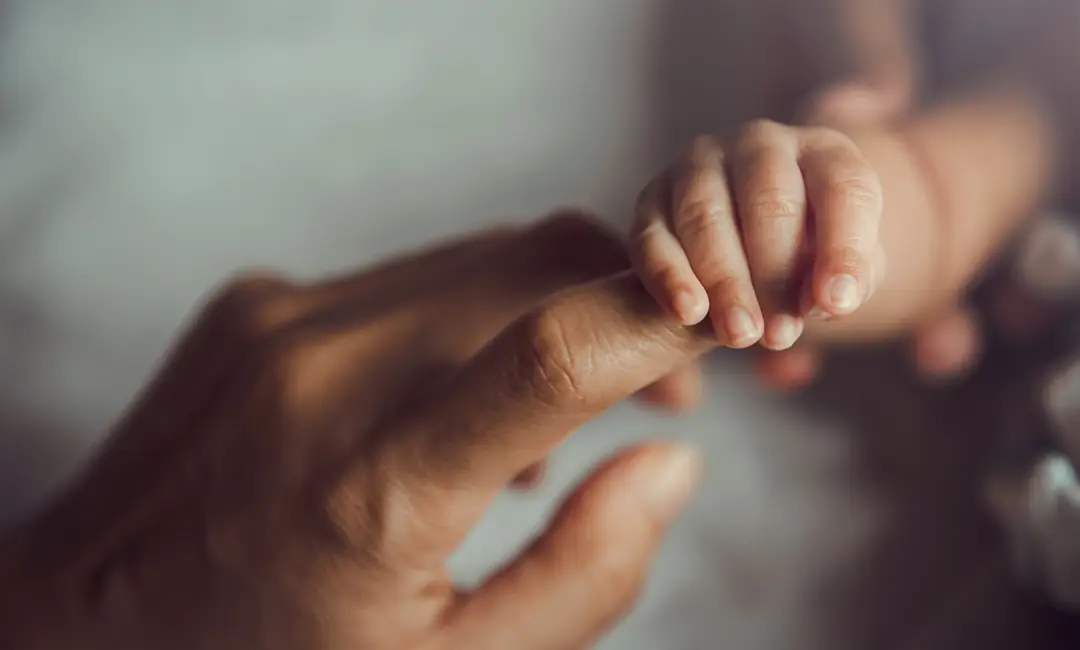Summary:
- Postpartum depression (PPD) affects 10-15% of new mothers. It often appears in the weeks or months following a pregnancy, but can take up to a year to occur or even begin before pregnancy in some cases.
- Postpartum depression usually comes with feelings of sadness, hopelessness, and a lack of interest in previously enjoyed activities. It can also make bonding with the baby challenging, and even result in feelings of self harm.
- Strategies for coping with PPD include reaching out to loved ones (including friends, family members, and your partner), talking to a therapist, improving your physical health, and establishing productive routines or mindfulness practices. Therapy Utah’s qualified and licensed therapists can provide essential guidance during your recovery.
10-15% of new mothers experience postpartum depression, a type of mood disorder that can develop in women after giving birth. Postpartum depression is characterized by feelings of sadness, hopelessness, and disinterest in previously enjoyed activities—but recovery is possible, and help is available.
Reaching out to loved ones for support and creating habits to improve your physical health can effectively reduce symptoms of this common condition, but talking with a professional can also work wonders. Therapy Utah’s individual therapy services can help new mothers understand postpartum depression and provide guidance for coping with its effects.
Read on for more details—or contact Therapy Utah now to get matched with an experienced therapist who can create a custom recovery plan for you.
See Also:

What Is Postpartum Depression?
Postpartum depression is also known as PPD. It most commonly appears in women within the first few weeks or months after giving birth, although its onset can take up to a year. Some women may also experience symptoms of PPD during pregnancy.
Common Symptoms of Postpartum Depression Include:
- Persistent feelings of sadness, hopelessness, and worthlessness
- Loss of interest in previously enjoyed activities
- Difficulty bonding with the baby
- Crying excessively
- Difficulty sleeping, even when the baby is sleeping
- Loss of appetite or overeating
- Feelings of guilt and shame
- Difficulty concentrating or making decisions
- Feeling overwhelmed or unable to cope with daily tasks
- Thoughts of self-harm or suicide
It’s important to note that PPD can have different presentations, some women may experience symptoms that are severe and persistent while others may have more mild and intermittent symptoms.
How Seriously Should You Take Postpartum Depression?
Although the severity of PPD varies from one person to another, it can be a serious problem. It’s vital to note that PPD is not the same as the “baby blues,” which is a normal and temporary feeling of sadness or moodiness that many women experience after giving birth. PPD is a real medical condition that requires professional treatment.
It’s also important to know that PPD is not the mother’s fault, and not something she can simply “snap out of.” It is caused by a combination of physical, emotional, and environmental factors, and it can affect any woman, regardless of her previous mental health history.
The best thing you can do if you suspect you have PPD is seek help, since PPD can have a significant impact on your life and the well-being of your baby. Discover common ways to cope effectively with the symptoms of PPD on the list below.
Coping Strategies for New Mothers Experiencing Postpartum Depression
Reach Out to Loved Ones for Support
Talking to others about feelings of depression can be difficult, but it helps if you can find someone empathetic who you trust. Family and friends are often the best place to start, but talking with new mothers can also be a great way to share your feelings with others whose experiences allow them to empathize with you.

Communicate with Your Partner
Talking with your partner about your experiences with PPD helps them understand what you’re going through and the best ways to provide the support you need. It can also make them feel more involved in your recovery, which can strengthen your bond with them. Finally, strong communication with your partner is likely to help you avoid conflicts or misunderstandings that could make your PPD symptoms worse.
Talk to a Therapist about Your Feelings
Speaking to a qualified mental health professional about PPD allows you to express your thoughts and feelings in a safe, constructive, and non-judgmental environment. Our highly-trained therapists can also provide important clarity by helping you identify your specific symptoms, exploring the potential underlying causes of your PPD, and develop an action plan for improving your overall well-being. This plan might include elements of CBT (Cognitive Behavioral Therapy), specific medications, or participation in a support group.
Eat Healthy & Stay Hydrated
The link between physical and mental health is the subject of a significant amount of research, but the key takeaway for our purposes is that improving one can improve the other. Staying hydrated, improving your diet, getting more sleep, and exercising can all play important roles in reducing the symptoms of PPD (and other forms of depression as well).
Introduce More Structure to Your Routines
Structured routines are a proven way to reduce anxiety. For best results, we suggest creating routines that help with the diet, exercise, and sleep changes suggested above—that way, you’ll get the benefits of more structure in your life plus the effects of your new healthy habits!

Begin a Mindfulness Practice
Practicing mindfulness, which involves paying attention to the present moment and accepting it without judgment, is a key part of managing PPD symptoms. Mindfulness practices like meditation, deep breathing, and yoga can help you become more aware of your thoughts, feelings, and physical sensations.
This increased awareness can help with identifying negative patterns and learning to respond to them in a more constructive way—especially if you’re working with a qualified mental health professional to unpack these experiences in a safe environment. It’s worth noting that mindfulness is not a substitute for professional treatment but can be a helpful tool to use in addition to other resources.
Find Compassionate Support For Your Recovery
You aren’t alone if you’re suffering from postpartum depression, and you don’t have to recover alone either. Use our recommendations above to get started, and reach out to Therapy Utah for help finding a therapeutic match who can help you make meaningful progress towards a healthier you.










